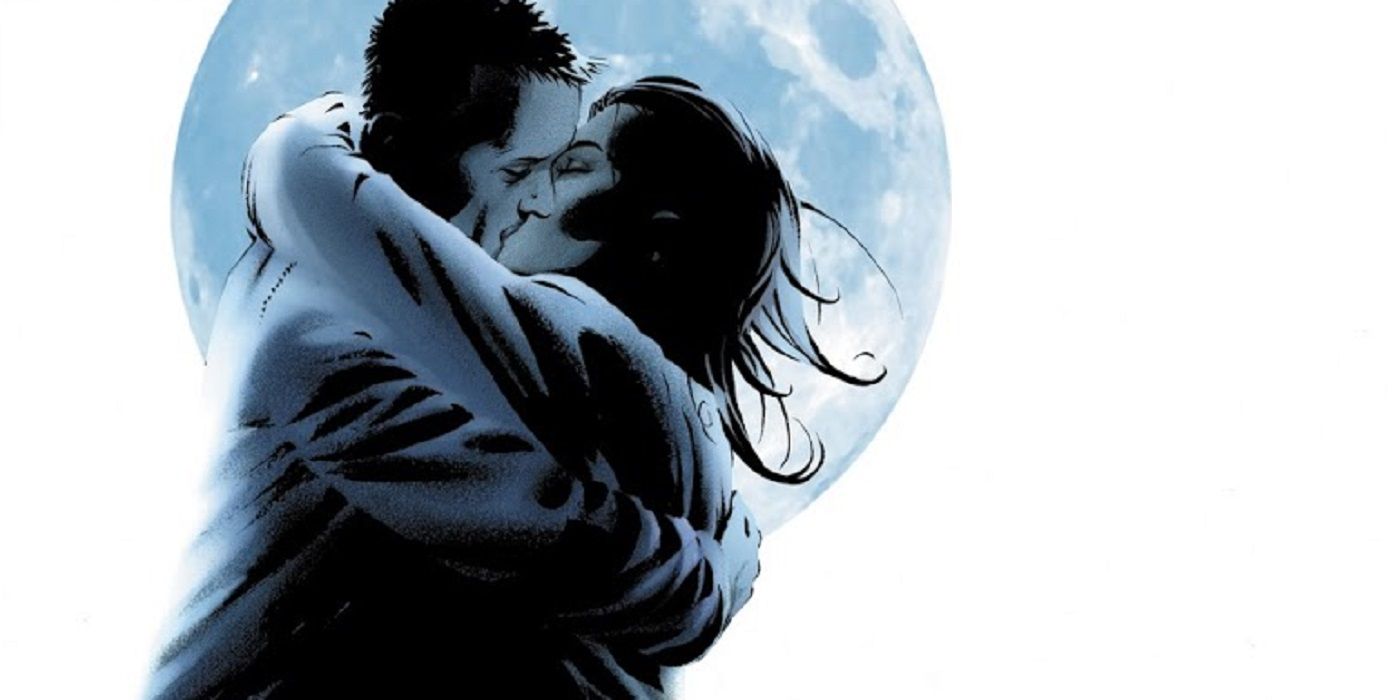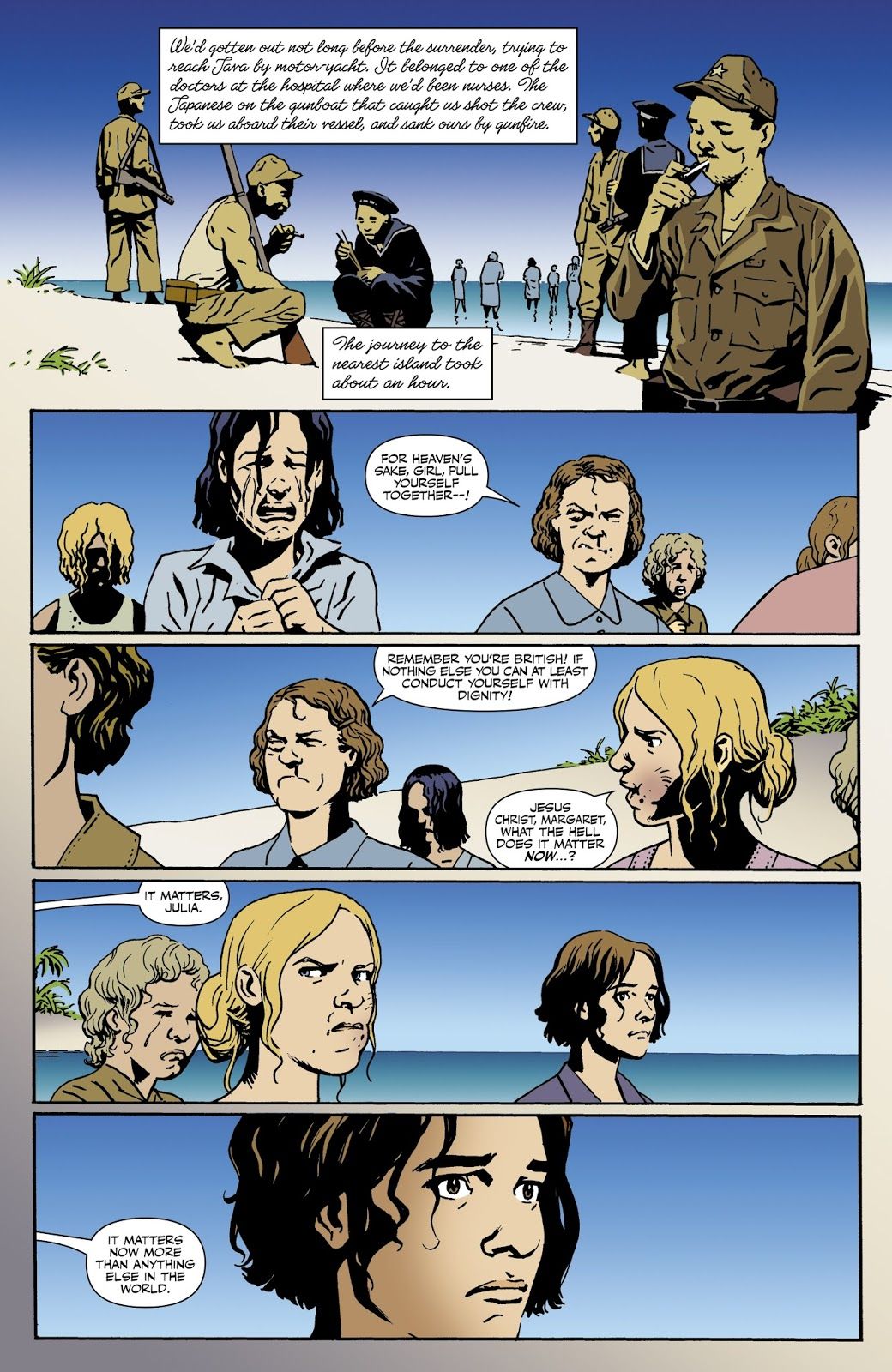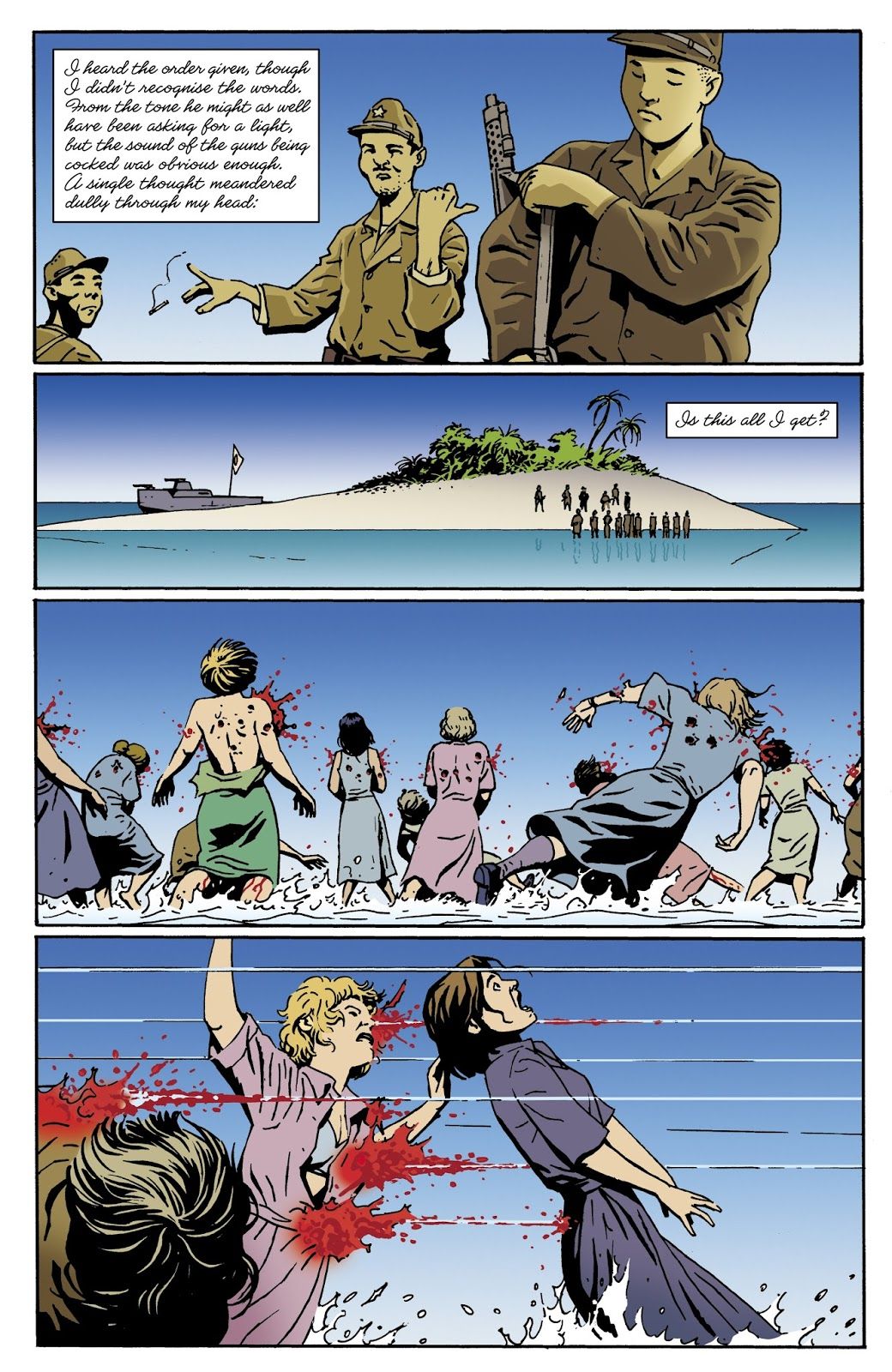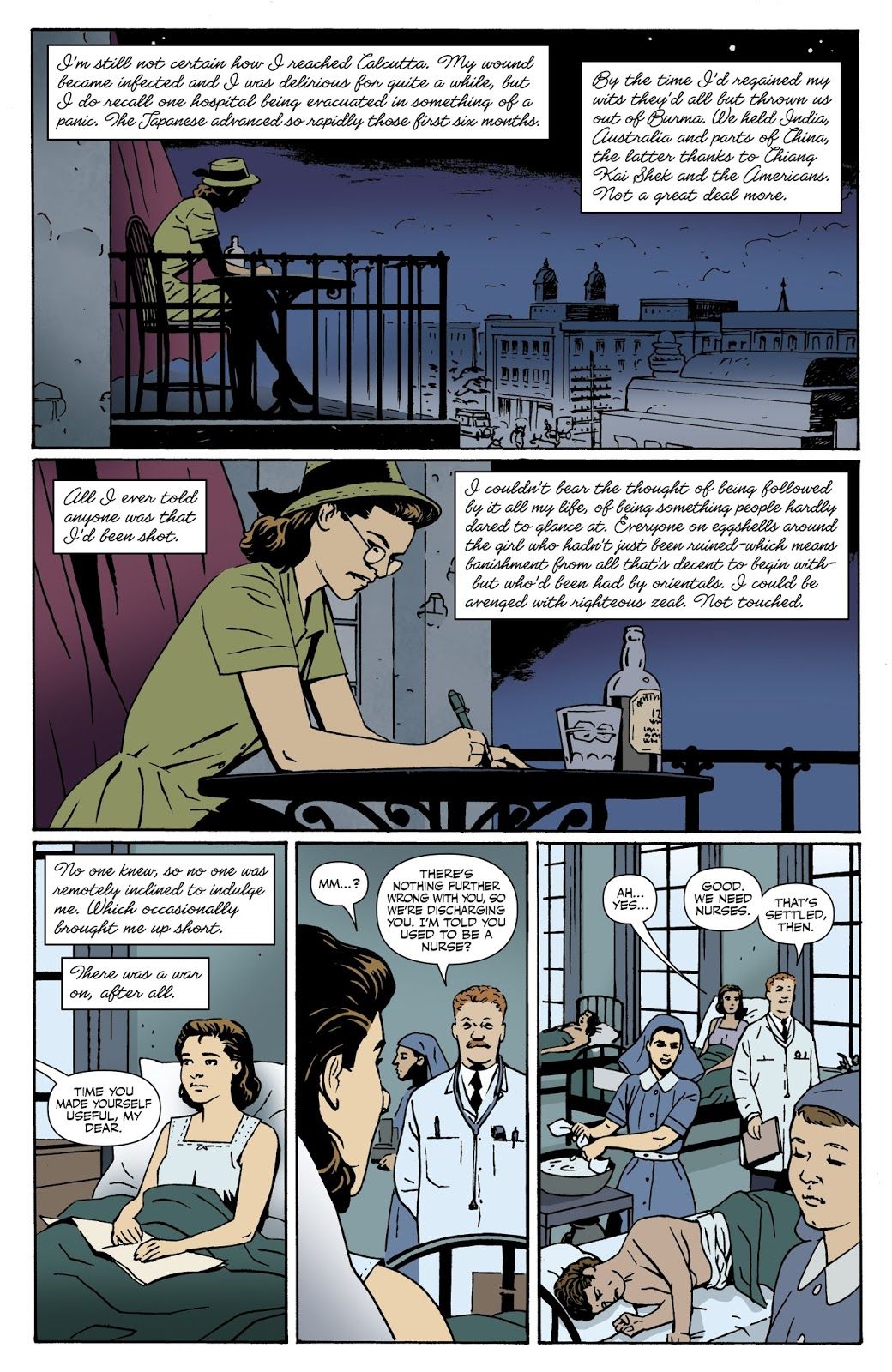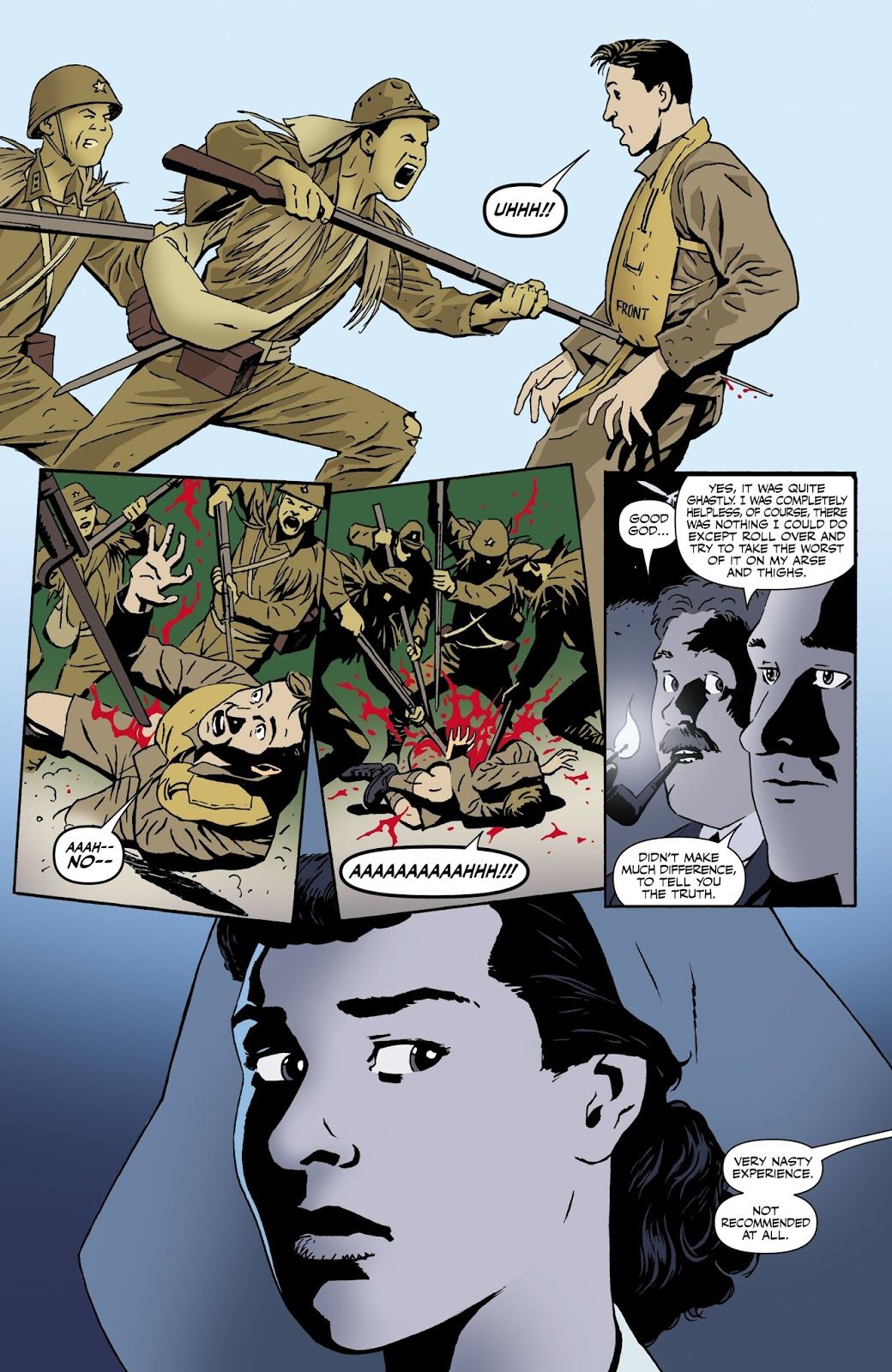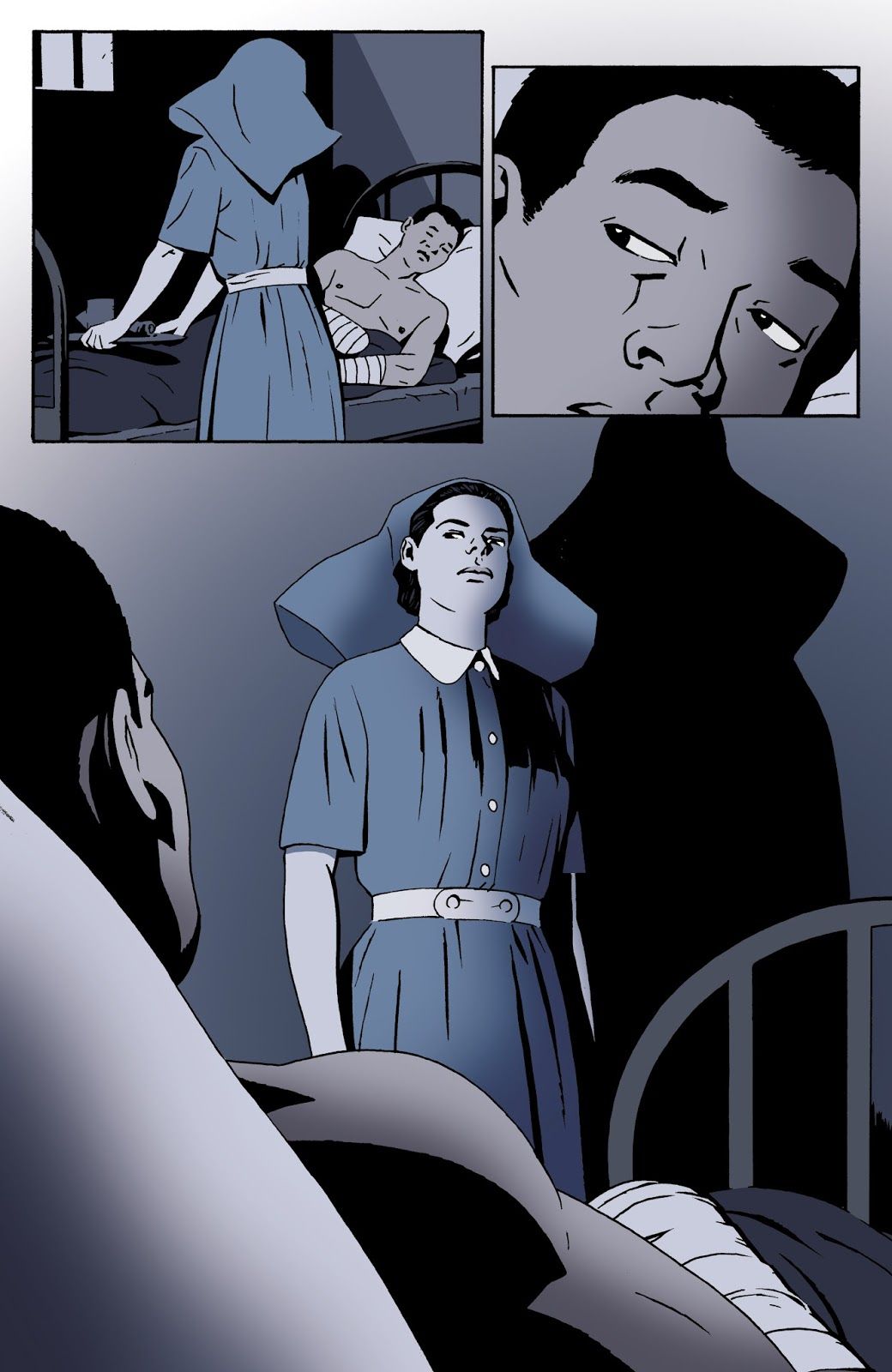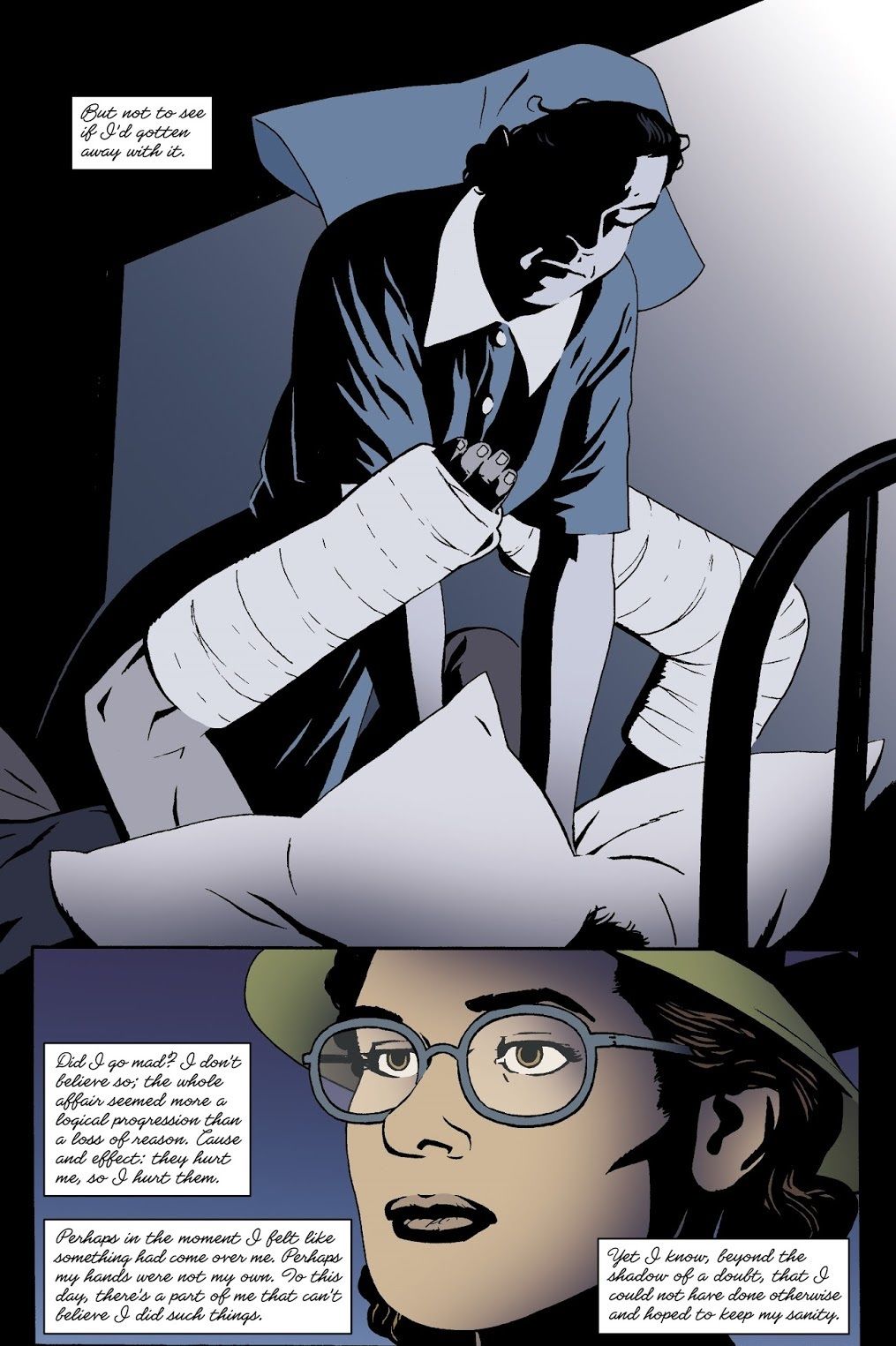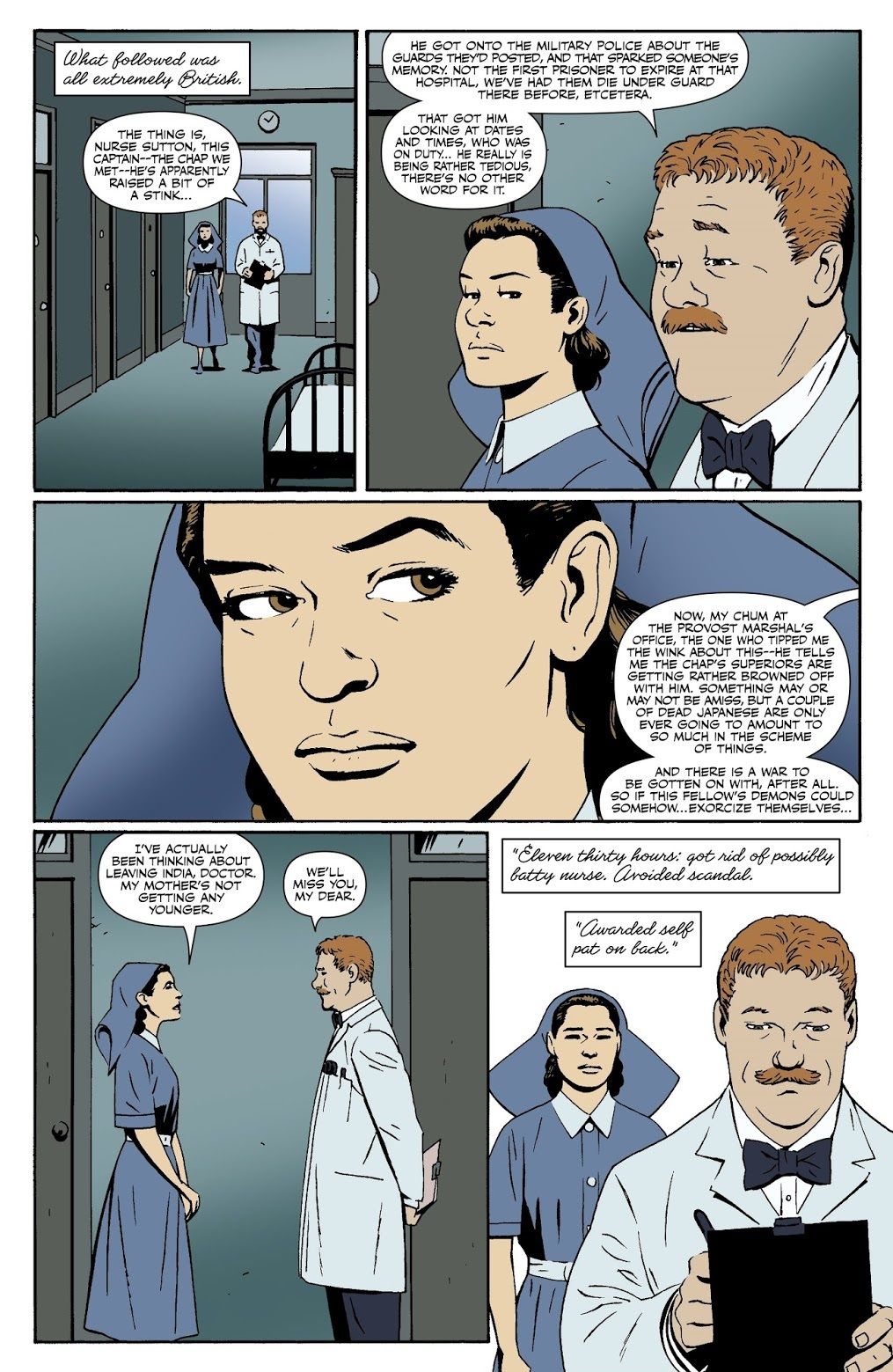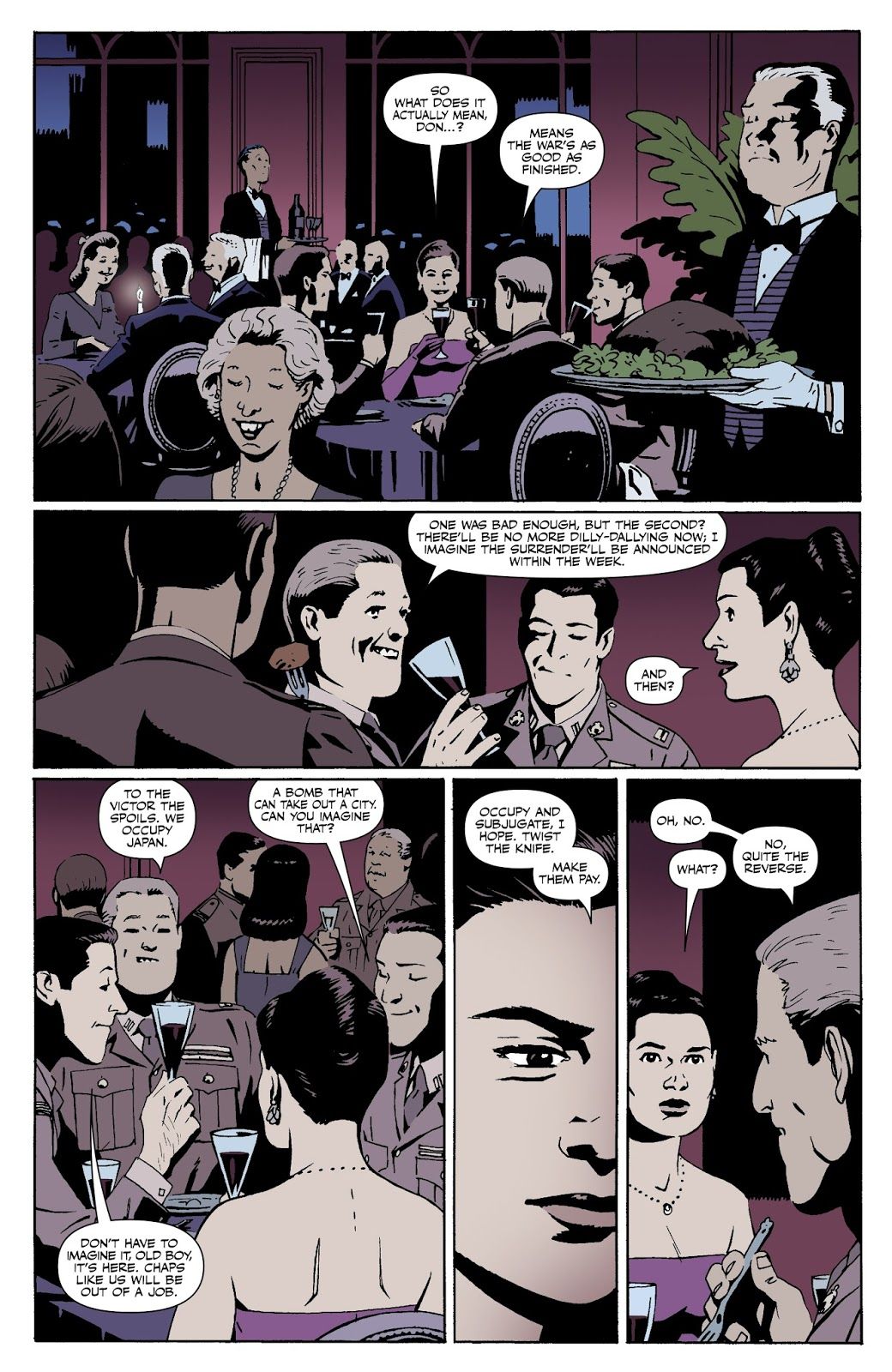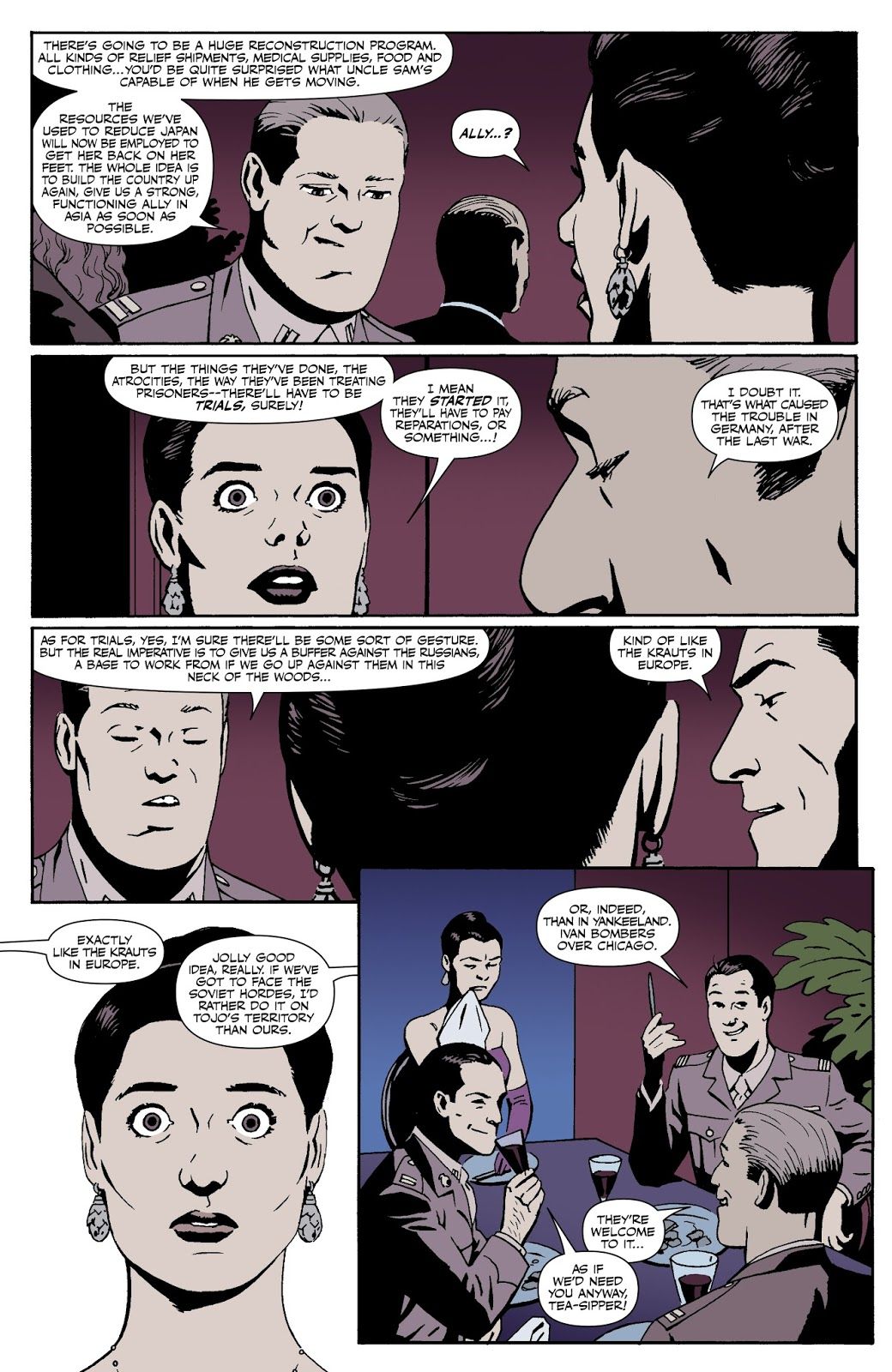This is "Look Back," a brand-new feature that I plan to do for at least all of 2019 and possibly beyond that (and possibly forget about in a week, who knows?). The concept is that every week (I'll probably be skipping the four fifth weeks in the year, but maybe not) of a month, I will spotlight a single issue of a comic book that came out in the past and talk about that issue in terms of a larger scale (like the series overall, etc.). Each week will be a look at a comic book from a different year that came out the same month X amount of years ago. The first week of the month looks at a book that came out this month ten years ago. The second week looks at a book that came out this month 25 years ago. The third week looks at a book that came out this month 50 years ago. The fourth week looks at a book that came out this month 75 years ago.
Today, we look at Garth Ennis and Peter Snejbjerg's Battlefields: Dear Billy, a three-issue series whose second issue came out in February 2009.
"Dear Billy" gets its title from the fact that the entire series is told in a handwritten letter that the lead character, Carrie, writes to Billy, the great love of her life (One of the few issues that I have with this great series is that the lettering on the handwriting CAN be a bit difficult to read at times, but I can see you would probably lose a lot of the effect of her narration if you chose to have the captions in a non-handwritten style).
The story opens with Carrie's background. This is some pretty messed up stuff, in case you want to stop reading here.
Ennis wanted to spotlight the "forgotten victims" of World War II, which is the great number of women who were raped during the war. That's what happens when a group of British nurses are raped and then lined up to be massacred...
Note the bit with the head nurse telling the others to keep a stiff upper lip. This series is all about the absurdity of that position. The idea that we tell people to, in effect, suck it up and expect that pain to somehow just, what, go away?
They are gunned down, but Carrie somehow survives...
Snejbjerg delivers the shocking violence really well.
Okay, so Carrie is discovered by a small British crew looking for survivors. They whisk her away to an army hospital where her wounds heal and she is pressed into service as a nurse again for the wounded soldiers from the war...
Once again, Ennis beautifully points out the absurdity of telling this woman, "Okay, your physical wounds are healed. Get over it." People have long had a hard time with "invisible" trauma and it is no different here.
She meets a young British pilot, Billy Wedgewood, who has his own traumatic story to tell, which she overhears him telling to another patient...
See, though, that Billy is given a voice. He can share his story with others. Carrie has no one to talk to. Part of that is because Billy deliver his story in that standard, "Oh well, a bit of bad luck" sort of way, but at the same time, Billy was not raped. There is a significant difference between their trauma that Ennis does not forget.
The series turns, though, when Carrie discovers that they have a Japanese prisoner of war in the hospital, as well...
Page 2: [valnet-url-page page=2 paginated=0 text='What does Carrie do next?']
Carrie murders him.
She then continues to murder every Japanese patient that she can get away with until she is finally caught and, of course, being rather British about it, they decide to sweep it under the rug and just transfer Carrie away...
She continues to be with Billy, who is advancing in the military and then the war with Japan ends and Billy and Carrie have lunch with a military colleague and Carrie assumes that the next step is to subjugate Japan and is shocked when she learns that the Allies plan to instead try to develop Japan as an ally!
She argues with Billy and then Billy says something that just breaks her. He says that now is the time for us to learn to love them. It is too much for Carrie and she goes home and finally tells her full story to Billy, right before taking her own life.
Ennis plays the ambiguity of it all tremendously well. He's certainly not saying that Carrie is correct to become a murderer or that her views of revenge are correct, but at the same time, he also wants to make sure that few of us can ever truly put ourselves in Carrie's shoes, either. It's just a sad, sad state of affairs.
However, the main thing is that it was a striking, well-told story by two top notch comic book creators in Ennis and Snejbjerg.
All of Ennis' Battefields books are collected by Dynamite.
If you have any suggestions for February (or any other later months) 2009, 1994, 1969 and 1944 comic books for me to spotlight, drop me a line at brianc@cbr.com! Here is the guide, though, for the cover dates of books so that you can make suggestions for books that actually came out in the correct month. For the 75 and 50 year old comics, the cover date is three months ahead of the actual release date (so May for a book that came out in February) while the 25 and 10 year old comics have a cover date that is two months ahead of the actual release date (so April for a book that came out in February). Obviously, it is easier to tell when a book from 10 years ago was released, since there was internet coverage of books back then.

